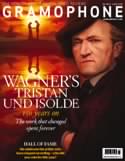Texte paru dans: / Appeared in: |
|
|
Outil de traduction (Très approximatif) |
|
|
Reviewer: David Vickers
Comparisons may be odious but sometimes they are impossible to avoid. Laurence Cummings made a live recording of Joshua at the London Handel Festival in 2008, and his performance six years later at the Göttingen Handel Festival was broadcast by NDR. The use of an entirely different crew of soloists, choir and orchestra means that Cummings’s revisited version feels and sounds only slightly like his previous one, although it does a comparably excellent job at ensuring Handel’s admittedly undramatic oratorio crackles along at a theatrical pace. The Göttingen Festival Orchestra perform with marvellous flexibility: concertmaster Elizabeth Blumenstock and principal cellist Phoebe Carrai play intimate concertante duet passages in Achsah’s ‘Oh, who can tell’ (one of numerous airs in Joshua that Handel based on old Roman compositions), and at the other end of the spectrum the orchestra prefer solemnity over mere bellicosity in the grand march illustrating the circumvention of the Ark of the Covenant.
Kenneth Tarver’s precisely articulated quick passages in ‘Haste, Israel haste’ are impressive, although elsewhere there are slight hints of strain. Tobias Berndt’s compassionate ‘Shall I in Mamre’s fertile plain’ signals a baritone to watch out for. Anna Dennis sings with limpid ease in Achsah’s ‘O had I Jubal’s lyre’; her delivery of the text sparkles gleefully and quick coloratura passages are treated intelligently as a natural part of the music rather than calling undue attention to themselves (it helps that the strings scamper merrily without formulaic complacency). Renata Pokupic´’s astutely characterised Othniel neatly sidesteps the fact that he is not an easy hero to bring to life – the chorus acclaiming his triumphant return from battle is much too rushed (the oratorio’s most famous number ‘See, the conqu’ring hero comes’). The disciplined NDR Choir produce mild un-English pronunciation on rare occasions (such as a Teutonic diphthong in ‘Ye sons of Israel’). Contrapuntal harmonies in the lamentation ‘How soon our tow’ring hopes are cross’d’ are moulded eloquently, and the full-strength army reinforced by trumpets, horns and timpani unleash colossal grandeur in ‘Glory to God’; it is easy to see why Handel’s knockout blow impressed Haydn, who heard it at Westminster Abbey in 1791.
|
|
|
|
|
|
Cliquez l'un ou l'autre
bouton pour découvrir bien d'autres critiques de CD |
|

/4015023264038.jpg)


